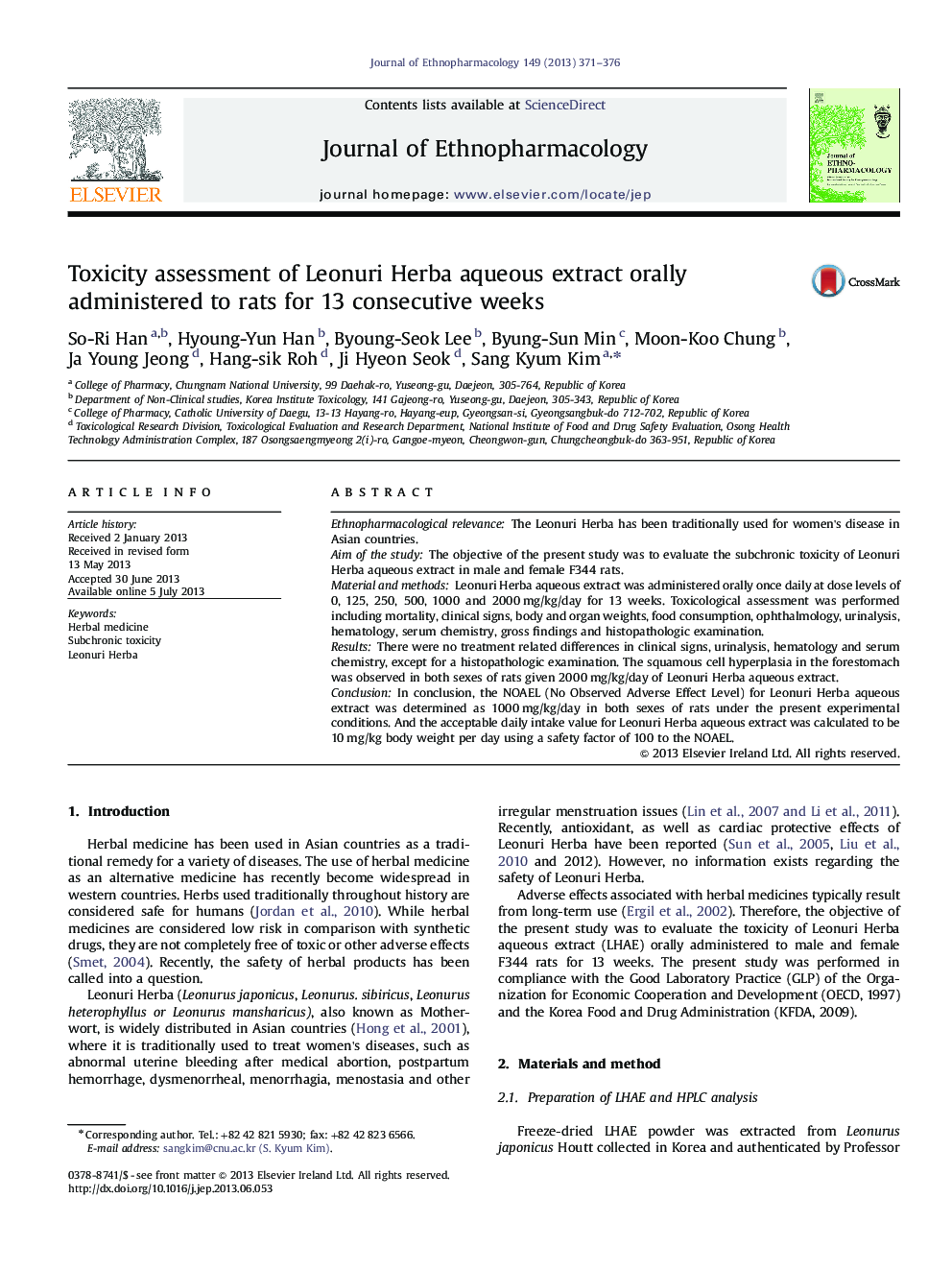| Article ID | Journal | Published Year | Pages | File Type |
|---|---|---|---|---|
| 5837102 | Journal of Ethnopharmacology | 2013 | 6 Pages |
Ethnopharmacological relevanceThe Leonuri Herba has been traditionally used for women's disease in Asian countries.Aim of the studyThe objective of the present study was to evaluate the subchronic toxicity of Leonuri Herba aqueous extract in male and female F344 rats.Material and methodsLeonuri Herba aqueous extract was administered orally once daily at dose levels of 0, 125, 250, 500, 1000 and 2000Â mg/kg/day for 13 weeks. Toxicological assessment was performed including mortality, clinical signs, body and organ weights, food consumption, ophthalmology, urinalysis, hematology, serum chemistry, gross findings and histopathologic examination.ResultsThere were no treatment related differences in clinical signs, urinalysis, hematology and serum chemistry, except for a histopathologic examination. The squamous cell hyperplasia in the forestomach was observed in both sexes of rats given 2000Â mg/kg/day of Leonuri Herba aqueous extract.ConclusionIn conclusion, the NOAEL (No Observed Adverse Effect Level) for Leonuri Herba aqueous extract was determined as 1000Â mg/kg/day in both sexes of rats under the present experimental conditions. And the acceptable daily intake value for Leonuri Herba aqueous extract was calculated to be 10Â mg/kg body weight per day using a safety factor of 100 to the NOAEL.
Graphical abstractDownload high-res image (210KB)Download full-size image
